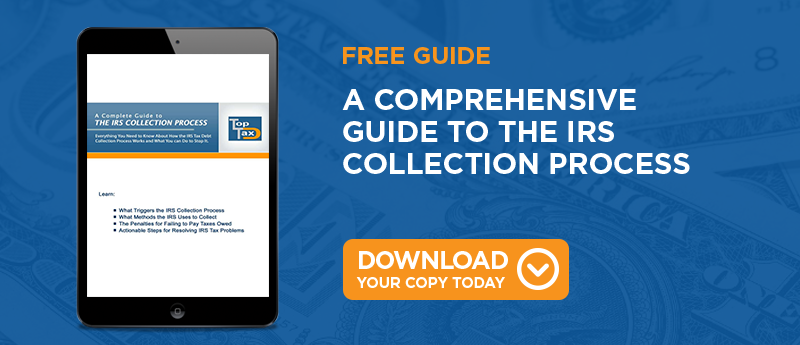 As if the U.S. tax code wasn't complicated enough, the IRS also wants its share of your Bitcoin transactions. The problem is, of course, that you may not have written down every single taxable event you created with your Bitcoin, probably because you never knew you were doing it.
As if the U.S. tax code wasn't complicated enough, the IRS also wants its share of your Bitcoin transactions. The problem is, of course, that you may not have written down every single taxable event you created with your Bitcoin, probably because you never knew you were doing it.
If you are new to cryptocurrency, you need to know that Bitcoin is not considered currency by the IRS. The Internal Revenue Service treats Bitcoin as property. Tax rules for property are different from the tax rules for currency.
In a way, it's like paying for your stuff with stock. The IRS wants to know if you have a loss or gain from the transaction. They especially want to know if there's a capital gain because then you owe taxes on your capital gains (although it still isn’t that simple).
Here’s what you need to know about Bitcoin taxes.
Keep Track of Every Transaction
Whether you use Bitcoin to purchase something, are paid in Bitcoin, are rewarded with Bitcoin, or are mining Bitcoin, keep track of how much each block was worth when you received it and how much it was worth when you spent it.
Why? Because, even though the IRS has not provided much in the way of guidance despite Bitcoin celebrating its 10th birthday, it still expects taxpayers to pay taxes on their cryptocurrency taxable events. Yes, it sounds totally unfair, and Congress is on your side, but the IRS has yet to really clear things up. Except for wanting you to pay taxes, of course.
The reason it’s so complicated is that Bitcoin doesn’t have a set value. Its value is volatile and changes just like stock prices change. You may have purchased Bitcoin for a hypothetical $50, but when you used it to purchase other cryptocurrency, goods, or services, its value may have been a hypothetical $75. (These are made up numbers just for examples.)
According to IRS logic, you enjoyed a gain of $25 with your Bitcoin because it was worth more when you spent it than when you purchased it. And now you have to pay taxes on your capital gain.
Learn What a Taxable Event Is with Bitcoin
Purchasing Bitcoin is not a taxable event. You can buy Bitcoin using “fiat” money, which in the United States is U.S. dollars. Taxable events occur when Bitcoin is spent, sold, received, or exchanged. The taxable events are many…
- Selling Bitcoin or any cryptocurrency for cash.
- Paying for goods or services with Bitcoin.
- Buying another cryptocurrency with Bitcoin.
- Being paid in Bitcoin.
- Receiving mined Bitcoin or airdropped Bitcoin.
- Certain situations with forked Bitcoin.
What isn’t a taxable event with Bitcoin?
- Donating Bitcoin to a qualified tax-exempt charity or non-profit.
- Buying Bitcoin with cash and holding it (not spending it).
- Transferring Bitcoin between wallets.
- Transferring Bitcoin between Coinbase or another cryptocurrency brokerage/exchange accounts or from an external wallet to a Coinbase or another cryptocurrency brokerage/exchange account.
OK, so far?
Airdrop? Forked? Mining?
Here are a couple of definitions of terms used above that you may or may not have heard.
- Forked Bitcoin is a term indicating your Bitcoin has split into two or more branches because the existing code for the coin changes. You end up with the original Bitcoin and one or more new versions of Bitcoin.
- A hard fork is when Bitcoin is split into Bitcoin and Bitcoin Cash. A soft fork means the code is changed but is still backward compatible with older versions. Now you have something more like a single updated blockchain instead of two or more new blockchains.
- Airdrops are free Bitcoins sent to your wallet, such as during a publicity move to increase awareness of a token. You usually only know about it when you check your Bitcoin wallet or account.
Mining Bitcoin gets very complicated, so if you want the full story, go here. A mined Bitcoin is considered ordinary taxable income.
Again, no guidance from the IRS on how to treat forked or airdropped Bitcoin. It may be best to treat it like "found" money and count it as a taxable event. However, more complications ensue because a hard forked Bitcoin is counted as ordinary taxable income, not a capital gain. Then if you sell the Bitcoin, you must use the amount you reported as ordinary income as the basis to calculate capital gains from selling it.
By the way, the jury is still out on the precise way to calculate the fair market value for cryptocurrency.
Calculating Taxes
Each purchase of Bitcoin is considered a trade lot, like stocks. Keep track of the purchase price of each lot. When you sell any of that lot or use any of that lot to purchase something else, keep track of those trade lots as well.
- If selling Bitcoin at a profit within a year of purchasing it, you report short term capital gains on your tax return and pay ordinary tax rates.
- If selling Bitcoin at a profit after holding it for more than a year, you may be able to report long term capital gains and pay a lower tax rate than for short term gains.
- If selling Bitcoin at a loss generates short or long term capital losses, it can offset capital gains, unless you buy Bitcoin within 30 days before or after selling Bitcoin for a loss, which may result in a wash sale. The loss must be folded back into the purchase.
- If you are paid in Bitcoin for goods or services provided, you owe ordinary income taxes, just as if you were paid in currency. You also owe self-employment taxes.
- Mined Bitcoin is valued as income at fair market value on the day it was mined; once mined and you pay income tax, it becomes a trade lot in your Bitcoin inventory. Subsequent sales or uses result in capital gains or losses, short or long term.
- If you have a credit card that uses small amounts of Bitcoin to pay for the purchase, it creates a taxable event. Keep track.
Even if your head isn’t spinning at this point, you should consult a tax professional who understands cryptocurrency and taxation. Some forms you and your tax consultant may need include Form 8949 for capital gains/loss information from your transaction reports, Form 1040 Schedule D, Capital Gains and Losses, and Form 1099-K (Payment Card and Third Party Network Transaction).
Be Sure to File On Time
Now that you have the cryptocurrency part of your tax form completed, and presumably your other tax information as well, be sure to file and pay on time to avoid penalties, fees, and interest.
Bitcoin and other cryptocurrency were supposed to simplify things. They forgot to tell the IRS.




